Fragility
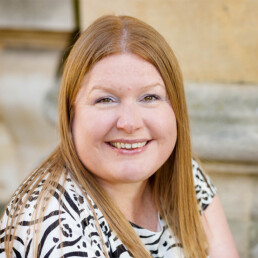
Hannah Wilson
Blog originally published here.
Fragility: noun. the quality of being easily broken or damaged; the quality of being easily harmed or destroyed.
See my twitter thread on Fragility which led to this blog.
Life is fragile. The world is fragile. Humanity is fragile.
When I think of fragile things I think of bubbles, snowflakes, panes of glass, flowers, butterflies, glass baubles and dandelion clocks.
Fragile, delicate things. Things that break easily. Things that shatter.
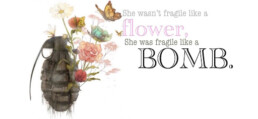
The universe has spoken in the last few months and reminded us of the fragility of our lives, our world and our humanity.
We have been reminded that we are not in control. We have been reminded that life is short. We have been reminded that we will all die one day.
I have always been afraid of death. I had nightmares as a child about it. I would wake myself up crying, scared of people around me dying.
As a 41 year old I have surprisingly never been to a funeral. I have attended just one memorial for a friend who died of cancer when we had just finished university. Her body succumbed to the illness on her third wave as it crept into her spinal cord.
Synonyms for fragile include brittle, breakable, flimsy, weak, frail, delicate and eggshell. For fragility we can interchange frailty, weakness, delicacy and vulnerability.
I sometimes wish we could wrap our loved ones up in cotton wool, put them in a bubble to protect them from harm.
Thinking about the calcified shell of an egg, I wonder about the scientific wonder of a brittle layer, holding life within. Protecting the inner contents from force, desiccation and danger.
Fragile things need to be guarded, they need to be treated with care. One careless touch can irrevocably damage that state of a delicate object.

But then we come to white fragility. A term that has become part of the common parlance in the #BlackLivesMatter narrative.
Unlike, the delicate, beautiful, fragile objects we need to preserve and protect, white fragility, to the converse does need shattering.
White Fragility: noun. discomfort and defensiveness on the part of a white person when confronted by information about racial inequality and injustice.
In 2011, Robin DiAngelo coined the term “white fragility” to describe the disbelieving defensiveness that white people exhibit when their ideas about race and racism are challenged—and particularly when they feel implicated in white supremacy.
I repeat: Life is fragile. The world is fragile. Humanity is fragile.
Yet, we have an issue. We seem to be more uncomfortable in being party to a conversation about racism, than we are about the act of racism itself.
All human lives are fragile, there is not a hierarchy of some lives being of more value than others. We live in the same world, but some parts are more fragile than others. Some inhabitants exist in more delicate and more fragile situations than others. Humanity is fragile, but there is a scale of fragility. We will all die, but we do not all fear death and danger, day in and day out.
We, as white people, need to educate ourselves on our whiteness. Words I am reading, seeing and hearing regularly that need unpacking:
White privilege: white skin privilege refers to societal privilege that benefits white people over non-white people in some societies, particularly if they are otherwise under the same social, political, or economic circumstances.
White supremacy: is the racist belief that white people are superior to people of other races and therefore should be dominant over them.
White power: a white supremacist slogan designed to mimic the “black power” slogan often used by African-Americans in the 1960s/70s. It is a commonly shouted at white supremacist events as a racist rallying cry.
White silence: white silence is experienced by members of the White culture who, during discussions of racial issues, experience negative emotions including guilt and anger. When these feelings are not addressed, Whites begin to resist certain content areas. This resistance takes on the form of White silence.
White allies: a white ally acknowledges the limits of her/his/their knowledge about other people’s experiences but doesn’t use that as a reason not to think and/or act. A white ally does not remain silent but confronts racism as it comes up daily, but also seeks to deconstruct it institutionally and live in a way that challenges systemic oppression, at the risk of experiencing some of that oppression. Being a white ally entails building relationships with both people of color, and also with white people in order to challenge them in their thinking about race. White allies don’t have it all figured out, but are committed to non-complacency.
White tears: The phrase has been used to gently tease white people who get upset at things they think threaten their white privilege. It’s been used to poke fun at white people who think that talking about race makes you a racist.
Whitesplain: ‘splain’ has since become an affix signifying a patronizing, condescending explanation, usually given by a person in a privileged position. Whitesplain, then, is when a white person explains a topic, often concerning matters of social justice or minority culture, in an overconfident, often inaccurate manner to people of color. (A new one I heard for the first time this week is: “PrivSplain“)
White panels: white people need to get better at seeing race, addressing it, and addressing our own complicity. Taking part in all-white panels – especially on a subject where race is central – simply isn’t good enough.
Other phrases that are showing up repeatedly that we also need to consider the significance and connotations of are: White pillars. White solidarity. White equilibrium. White racism. White progressives. White hostility. Colour Blindness.
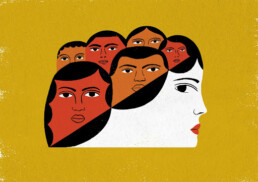
Why is it so hard for white people to talk about racism?
This is the question posed by academic Robin D’Angelo in her book “White Fragility”. Her research exposes racism in thought and action – it is a call for humility and vigilance.
“The problem with white people,” she says, “is that they just don’t listen. In my experience, day in and day out, most white people are absolutely not receptive to finding out their impact on other people. There is a refusal to know or see, or to listen or hear, or to validate.”
Robin D’Angelo
I have seen a lot of white people get very uncomfortable about what to do and what to say in the current context. Conversations about racism will cause discomfort and defensiveness. Our focus and attention should be on the discomfort of others, our defence should be of lives not egos.
We, as white people, need to get comfortable with being uncomfortable, that is how we listen, we learn and we progress.
We, as white people, need to stop being part of the problem, and we instead, need to start being part of the solution.
We, as white people, need to put our disbelief and sensitivity to one side and we need to be aware that we are complicit in society’s institutional racism.
Being silent is not enough. We need to be anti-racists rather than non-racists. We need to be active not passive in our commitment to ensuring that everyone is seen, everyone is heard, everyone is valued.
We have had a wake-up call, and we need to put our fragility to one side, and respond.
We need to check our privilege and we need to commit to being better, to doing better. One thing I am going to commit to continuing to do is calling out all-white line ups.
As women we have critiqued all male line ups at events, but as women now penetrate more panels and their voices are heard in more spaces, we need to make sure that white women are opening the door for brown and black women to step in and share that space. I am seeing too many influential white women in education accepting to speak at events where there is not diverse representation. This is not good enough.
We need to pop the bubble we exist in.
Brene Brown has started a campaign this week called #ShareTheMicNow to model how to do that. Please check it out.
Autonomy

Hannah Wilson
noun. the right or condition of self-government; (in Kantian moral philosophy) the capacity of an agent to act in accordance with objective morality rather than under the influence of desires.
In developmental psychology and moral, political, and bioethical philosophy, autonomy is the capacity to make an informed, uncoerced decision. Autonomous organisations or institutions are independent or self-governing.
I thrive in cultures which enable autonomy. I love being autonomous.
When I reflect on my roles over time I realise that my job satisfaction, my sense of fulfilment and my wellbeing were deeplf affected by how autonomous I could be in each role, in each organisation, in each context.
As an Assistant Principal, my Principal trusted me, he empowered me to be autonomous and I thrive. As a Vice Principal, my new Principal controlled us, he micro-managed me so we were disempowered. As a Headteacher I was initially quite autonomous, and then the Trust became more and more controlling, each line manager tried to rein me/ us in (also all men).
The tensions between my line manage, my employer and I have all stemmed back to my autonomy being restricted or removed. I wonder if perhaps my frustration also links back to the patriarchal power structures at play.
Our ability to be autonomous comes from our ability, our experience, our capacity, our confidence along with how we are trusted and how we are held to account. Our ability to enable and empower others to be autonomous relies on our trust and faith in them.
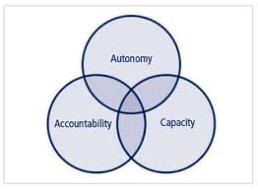
For me, autonomy is rooted in independence. It is fuelled by the need for freedom. It is framed through integrity.
Our schools do not enable and empower teachers and leaders to be autonomous. Our system conditions us to be compliant. Our society trains us to follow rules, to not be disruptive or rebellious.
Do we fear autonomy? Are we afraid of losing control?
“The 3 things that motivate creative people: autonomy, mastery and purpose”.
Daniel H.Pink
We go into teaching as our purpose, we deepen our understanding and polish our craft to become masters, as creative beings it is the autonomy or lack of that drives us out.
“Autonomy is different from independence. It means acting with choice”.
Daniel H. Pink
We enable and empower others, the children we serve, the teams we lead to be independent and to make choices. Being autonomous is also about owning those choices and the consequences that arise.
“Control leads to compliance: autonomy leads to engagement”.
Daniel H. Pink
We seek to self-manage and to self-regulate, we strive to enable others to do the same. When we relinquish control, when we release the need for compliance, autonomy increases and engagement thrives.
“Alignment enables autonomy”.
Henrik Kniberg
After 18 years of working in the system, I have taken the leap of faith to work independently. I am now truly autonomous. My purpose, my passion and my gifts are in alignment as my intentions, my practice and my autonomy are brought to life – they are working in synergy with one another.
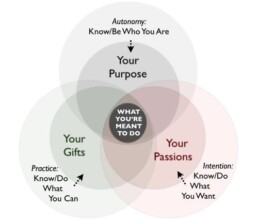
I know who I am, I know what I want to do and I know what I can do. I know that I am doing what I am mean to do because I am happy, content, stress-free. I feel purposeful, passionate and fulfilled.
What I didn’t realise when I made that leap of faith was that I had already wings – I had built them over time. As I jumped from the cliff and left security, stability and safety behind me, my wings have enabled me to transform into the autonomous being I have also needed to be. I make informed uncoerced decisions, I am independent and self-governing. I am empowered in my autonomy.

Choices

Hannah Wilson
noun. an act of choosing between two or more possibilities.
Following my 3 day weekend being trained to coach my clients for Fulfillment in early January, we spent another intense 3 days exploring how to coach for Balance. This is where the theme of Choices emerged from.
A lot of people say they want more balance in their lives. What we usually want is to feel that we are choosing our lives, not just reacting to them. Balance coaching is a way to guide people into making powerful life choices and actively manifesting the experiences they want most. Balance coaching makes us active participants in how we experience our lives.
Balance coaching is thus designed to create flow, restore alignment, and regain control of life. When conversations focus on what we have control over and what choices are possible, we help people gain new perspectives. This training weekend gave us the tools to empower our clients to define and pursue the experiences they want most, resulting in action that is alive, effective, and empowered.
Some of the coaching tools we developed and experimented with included: making resonant choices, building new perspectives, forwarding the action, being in flow, creating self-affirmations.
Ultimately, we are our choices. Below are a few of the quotes that remind me this:
“Life is a matter of choices, and every choice you make makes you”.
John Maxwell
“No matter what the situation, remind yourself, ‘ I have a choice’ “.
Deepak Chopra
“The 3 Cs of life: Choices, Chances and Changes. You must make a choice to take a chance or your life will never change”.
Zig Ziglar
As we unpacked the power of choice I began to make links between my CTI coaching training and some coaching training I had completed a few years ago, when I first left headship and transitioned into working independently, to become a Resilient Leaders Element consultant coach.
The RLE coaching framework which the Co-Founders Dr Jeremy Mead and Rachel McGill have co-created and shaped over a decade of people development really resonated with me when my friend Julie Rees introduced me to it. The self-assessment you do before you start your coaching relationship gives you a visual representation of how you see yourself across the 4 elements (Clarity of Direction, Awareness, Leadership Presence and Resilient Decision-Making) which are each underpinned by 3 facets. Later in the journey you also seek peer feedback and you can then compare how you see yourself to how you are seen by others.
In RLE resilient decision-making is broken down into our ability to make different decisions, in different ways, at different times:
- Creative decision-making – the ability to work outside of the usual frame of reference and take a valuable idea from concept to reality.
- Robust decision-making – combining intellectual rigour, evaluation and awareness, giving solid foundations and contingency planning.
- Versatile decision-making – creating options, responding to the needs and urgency of the situation, thinking and operating at the appropriate level.
The Impact
“Great decisions are made at the right time, with the right people, in the right place. Contingency options are always available so that the unexpected can be dealt with effectively and confidently”.
Completing my RLE accreditation during lockdown and at such a pivotal transition point in both my career and in my life, helped me anchor who I am and what I do, but it also helped me to forward the action as it gave me a framework to apply to myself and my emerging business:
- I had to be creative in my decision-making as I had to unlearn how institutionalised I was after 20 years of working in the system, I was also creating a new business from scratch and going through a rebranding process as a Leadership Development Consultant, Coach and Trainer.
- I had to be robust in my decision-making as I needed to make a living. It is scary going from financial security and job stability, when you venture into the unknown. I made the decision to take in a lodger for 6 months, just in case I did not make enough in my first few months to cover my mortgage.
- I had to be versatile in my decision-making as we unexpectedly found ourselves in a global pandemic and were thrown into working remotely. For many of my peers this was a major challenge as they had to flip their offer into a virtual one, I started my business at this time so embraced this new way of working and established it as the norm.
I spent a focused 6 months building my business and crafting my training and coaching offer for my network. I didn’t expect, nor intend, to be repeating this process 6 months later. But in the wake of George Floyd’s murder and the social justice activism my network made requests of me around formalising Diverse Educators and increasing our support/ training offer for schools.
My creative decision-making kicked in as we created a second website, my versatile decision-making was activated as I flexed my offer, and my robust decision-making grounded me as I sought partners to fund some of this collective project as I had invested what savings I had in the earlier process. So I made a choice to have two websites, two newsletters and two sides to my offer.
Although my work in leadership, coaching and training is clearly aligned and crosses over to the diversity, equity and inclusion community I am growing, I needed to separate the individual versus the collective offer.
Throughout this career and life transition, I was coached and supported by those around me. We regularly talked out the power of saying Yes and the power of saying No. I reflected on who and what I was saying Yes and No to as I realigned my purpose and streamlined my passion into working independently. This quote by Paulo Coelho is one of my favourites and one I regularly use in coaching and training sessions.

I use it whenever I fall into the dilemma of wanting to choose to say Yes to every opportunity that comes to me as so much is resonant and vision/ mission/ values-aligned, but I need to remind myself that each choice is active and each time I say Yes to someone else I am saying No to myself. I need to consistently make choices about Who I Am, alongside the What I Do.
Empowerment

Hannah Wilson
noun. authority or power given to someone to do something; the process of becoming stronger and more confident, especially in controlling one’s life and claiming one’s rights.
To empower. To be self-empowered. To empower others.
Your Strength
For me self-empowerment is rooted in our inner strength. The strength we have at our core – our inner reserves of resilience propel us forwards.
Being self-empowered is also about being self-sufficient and having self-efficacy.
It is self-empowering to face challenges head on, to rise to the challenge.
“A strong woman looks a challenge in the eye and gives it a wink”.
Gina Carey
It is also self-empowering to reflect on everything we have overcome. Our journeys, our struggles make us stronger.
I feel self-empowered when I reflect on the battles I have won, the obstacles I have navigated and the barriers I have climbed over.
“There is nothing stronger than a broken woman who has rebuilt herself”.
Hannah Gadsby
Self-empowerment is also about our abilities to rebuild ourselves when things go wrong.
There is no such thing as winning and losing. Failure is not a choice.
Mistakes makes us stronger and are opportunities to learn and grow.
Your Confidence
Self-empowerment is fuelled by our confidence.
Confidence in our own abilities, confidence in ourselves means that we hold onto our power and we do not give it away.
It is an act of self-empowerment to be ourselves, to be authentic.
It is self-empowering to know our own worth, to acknowledge the impact we have, to appreciate the value we add.
“Noone can make your feel inferior without your consent”.
Eleanor Roosevelt
Small things can make a big difference to how self-empowered we feel.
Saying No is an act of self-empowerment.
Saying ‘Thank you for waiting for me’ instead of ‘Sorry I was late’ is a self-empowering reframe.
Saying who we are with pride, rather than the self-deprecating “I am just a…” expands us rather than diminishes us.
Accepting compliments and basking in praise, empowers us to be seen and to be honoured.
Your Courage
Being yourself is an act of courage. Being yourself is about owning your own power.
To reach the courage to be our full selves, we need to overcome the fear of being judged and of being criticised.
I was once told to reframe criticism as praise and this helped me to be self-empowered from the feedback.
When we are driven by the conviction of our values, when we are purposeful in our pursuit of our mission, when we are bringing our vision to life, the fear soon dissipates.
“You must never be fearful of what you are doing when it is right”.
Rosa Parks
Conviction in who we are, in what we do, in why we do it, reminds us, strengthens us and empowers us.
Self-empowerment becomes intuitive and instinctive when we listen to our gut.
A daily mantra, affirming who we are at our best sets us up for the day:
“You are braver than you believe, stronger than you seem, smarter than you think”.
Repeating our intent, out loud to ourselves in the shower, or whilst looking at ourselves in the mirror will deepen our sense of self-empowerment.
Reminding ourselves who we are, what we stand for, what we bring, whilst standing in the power pose will also turbo charge our sense of self-empowerment.
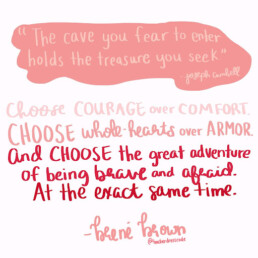
Your Narrative
Being self-empowered also means owning our stories.
We need to take control of our own narratives. If we do not do this then someone else will!
Life will throw stuff at us to test us. Each challenge will wound us, but it is our choice how long we let that pain linger for.
It is our choice if we let each challenge stop us, slow us down, or of we use it to empower us to carry on.
“She overcame everything that was meant to destroy her”.
Our scars tell the story of the battles we have fought to get to where we are.
Self-empowerment is sharing the journey as well as the destination.
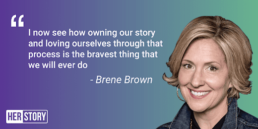
Your Tribe
I am self-empowered but I am also empowered by others.
I have a team of supporters, champions and cheerleaders who hold me high.
Our network gives us strength.
“Behind every successful woman is a tribe of other successful women, who have her back”.
Our tribe hold the mirror up to remind us who we are.
Our tribe shine a light on us to amplify our achievements.
Our tribe celebrates our wins and our learning points.
Our tribe stands with us and gives us that leg up or that helping hand when we need it.
“We rise and shine by lifting others”.
Self-empowerment walks along side empowerment.
Empowering others is as rewarding as empowering ourselves.
Be the girl, be the woman, who gives others a hand.
Mentor, coach and sponsor.
Build others up, don’t break them down.
“Girls compete, women empower”.
I have worked with people who have seen competition as a threat and it has brought out the worst in them.
Competition makes us better, there is room for us all to flourish, for us all to rise.
Your Life
Life is too short to wait.
Take opportunities as they come to you – say Yes and work it out later.
Do what feels right and seek forgiveness after, rather than permission before.
“The question isn’t who is going to let me: it’s who is going to stop me”.
Ayn Rand
Be empowered to be yourself.
“A girl should be two things: who and what she wants”.
Coco Chanel
Empower others to be themselves too.
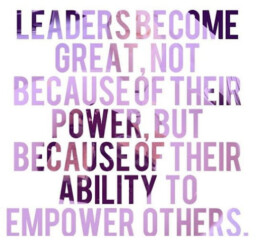
This Is How We Look When We Lead

Hannah Wilson
I have always been tall. Well above average in height shall we say. I come from ‘good stock’ it has often been said by family friends who are farmers – Dad is 6ft 1 and my Mum’s aunt is also 6ft too, so we have height on both sides of the family. But I am not just tall for a human – I am really tall for a woman. I tower over my female friends and some of my male friends too.
I can remember having friends who were taller than me at primary school and in Key Stage 3. I think I stopped growing around Year 9. My body hit pause, I was tall, but not exceptionally tall at this stage. Then something happened in Year 10. I shot up a few more inches. I became huge. A giant.
Being 6ft 1 when you are 14/15 and growing up in the 1990s in North Devon was hard when it came to clothes. I can remember the pain of clothes shopping as a teenager.
My younger sister, by 18 months, is a couple of inches shorter than me, and we have very different body shapes. I have always been curvy, carried a few extra pounds and am all leg (36 inches is my inside leg measurement!) whereas Pip is sportier in her physique and has a long back/ shorter legs. It meant that sharing clothes couldn’t really happen either. Saturday shopping trips for jeans or black trousers would often lead to arguments and tears.
My Mum is above average height at 5ft6 but she looks like a midget standing next to Dad, my sister and I. We often get comments when we are all together about how she gave birth to such giants. The human body is an amazing thing! My sister married someone taller than Dad so her family are all very leggy too and her teenager kids will soon tower over all of us. We definitely make an impact when we are all together, as you can’t really miss us as a family unit!
My height has helped me in my sports teams, I played netball, hockey and tennis for various teams at school, college, locally and then for university, often playing up a year due to my physical size. No, I don’t play basketball – a question I get asked a lot… So, my relationship with my height has been very much part of my relationship with myself, my friends, my partners and my career. After all I don’t know any different, there are some characteristics about our identity which we cannot change and whilst my weight has fluctuated, my hair colour has changed and my dress sense has evolved, my height has been a constant!
But how has my height shaped me as a leader?
I think I have probably taken my height for granted in many ways. Physically I know that I am very present. I am always visible – you can’t really hide when you are this height! I trained in tricky single sex boys’ schools and have always handled myself in busy corridors, playgrounds and have been known to separate many a fight. To be fair I just need to stand up as one of my behaviour management strategies. I know I have not had to work as hard as some of my smaller peers to establish myself, although I have also seen very tall men who are gentle giants who I have had to train and coach to be more present physically, to own their space so it is not always a given that if you are taller behaviour management is easier.
I was promoted early on in my career to Head of Year and I then became a Pastoral Middle Leader (the only female). I moved quickly onto SLT (I have served as the sole female on several male heavy leadership teams). I know my physique and my height, along with my loud voice and my confidence, have empowered me to hold my own. They have been an advantage in my career and perhaps, on reflection, I have experienced less bias than my petiter female friends, as a consequence. I think sometimes my male colleagues forget I am a woman in fact, as I can hold my own with the banter and handle myself with the jostling.
Being tall, leads to different choices about dress code too. I own heels, but I don’t need to wear heels. I used to wear them, and as my corridor stomp is well-known – colleagues and children would hear me before they could see me! But as I have been promoted, my work uniform has evolved and usually consists of a smartish dress with flat daps/ ballet shoes so I don’t suffer with sore feet, and so I can run around schools all day – as a school leader I was usually seen chasing a runaway down a corridor or up a stair case! When I worked under men who were shorter than me, I consciously wore flat shoes so as not to overpower them. They didn’t know this, but it was out of respect as I knew they had an invisible chip on their shoulders about their height. However, if they pissed me off, the next day I would come in wearing heels as symbolic gesture! I can remember at my second school I had a friend who had the same stature as me, our Headteacher was a small irritating man. The two of us were a tag team and would walk a corridor either side of him, hemming him in, if we needed to challenge anything.
So, my height has served me well as a leader, it has empowered me to be visible, to be present and to manage behaviour. Moreover, it has enabled me to hold my own as a woman in a male heavy space. Being tall has served my professional life well as it makes teaching and leading easier, whereas in my personal life it has been more problematic, but that’s a different story!
Some days I do feel like Gulliver in Lilliput. Travelling to Singapore in my 20s with a university friend, I felt like I was in a circus freak show. And, really, I should be rich for the number of times I have been asked “what’s the weather like up there?” Most of the time I can laugh it off, and after a few drinks in a bar if I get a “big lass” comment they usually get a retort along the lines of “rude git”. It is in those moments where you catch your reflection when you are standing next to a smaller colleague or you see a group picture and you are towering above everyone else that remind you that you stand out. It could make me self-conscious, and perhaps it did when I was younger, but I have worked through that and accepted myself for who I am.
I would say that my relationship with my weight has been less positive. Being tall and carrying weight is a double whammy. At school as a child I was bullied by a group of bitchy girls who called me BFG (“Big F***ing Ginger”) and the worse thing I have been called by a kid is a “Fat Bitch”. Although I think my retort at the time was: “whilst I might be fat, I am far from a bitch!” It has taken me longer to find peace with my body shape, my curves, and my weight. I don’t think my weight has impacted my leadership though. It is just who I am, I am comfortable in my skin and I have a strong sense of self. As a teacher and as a leader I have supported a lot of students struggling with their self-identity and their body image. I know I was lucky to have a strong family support network, so my self-esteem and self-confidence have always been high.
As for my hair colour, we were ginger when we were growing up, so my sister and I were on the receiving end of all of the schoolyard taunts. My sister fared it worse than me as she has curly hair too. The jibes cut her a lot deeper than they did me. I have always had thicker skin than her, and in defending her, I learnt to accept myself, I think.
When I went to university, I started to dye my hair and lost the ginger hues, and as I have aged, my hair has become naturally darker. Women don’t tend to comment on other women’s hair colour but some of the male leaders I have worked with, especially those who were threatened by me, did make comments about me being a feisty redhead, so I guess I have had to navigate some of the stereotypes that come with that too. I can remember watching an episode of Graham Norton and he had a couch of stunning redheads on it, and Julianne Moore shared her fascination with the British slurs for being a ‘ginga’ whereas in the US redheads are seen as being exotic. An interesting change in lens on what we value about differences in how we look.
Personal identity is interwoven with professional identity. Our leadership self is a fusion of how we look and how we behave, with what we know and what we create. Being myself, being authentic – being a tall, curvy, ginger – is who I am. I accept that, I own that, I am proud of that.
Authenticity

Hannah Wilson
Authenticity is about presence, living in the moment with conviction and confidence and staying true to yourself. Authentic is defined as: “not false or copied; genuine; real” and can also be described as “representing one’s true nature or beliefs; true to oneself or to the person identified.”
Authenticity is something I think, talk, read and listen about a lot. It is a word I mull over and explore. I have blogged about it, spoken about it at events and built it into training I have designed and led.
I don’t know what my parents put in my porridge when I was growing up but since I was a teen I have been stubbornly authentic. I describe myself as Marmite, I don’t evoke neutral responses, you either love me or you hate me, and I am fine with that.
There is a distinction between being liked and being respected at work, I care about being respected for my personal and professional integrity, I don’t need to be liked by others for my own sense of self-worth as I like myself. I am self-assured about my own worth. I self-validate who I am.
I am conscious that others do not have the self-confidence and high self-esteem that I have and that they want to work on it and nurture it. I am also acutely self-aware that confidence can be interpreted as arrogance if it becomes too amplified. It is a fine balancing act between being confident, being humble and being true to yourself.
A thought leader you cannot avoid when you are reading about what it means to live an authentic life and what it means to be your authentic self is the brilliant Brene Brown:
“To be authentic, we must cultivate the courage to be imperfect – and vulnerable. We have to believe that we are fundamentally worth of love and acceptance, just as we are. I’ve learned that there is no better way to invite grace, gratitude and joy into our lives than by mindfully practising authenticity”.
Brene Brown
This quote is so rich and dense with our values I am going to unpack each one she mentions, ironically we have already explored a lot of them as part of our #DailyWritingChallenge values journey over the last 7 weeks as we use the social isolation time to look inwards:
- Courage: being yourself means digging deep and revealing the real you, your whole self and not being a chameleon who transforms into the person other people want or expect to see.
- Perfection: once we recognise and accept that we are all flawed, we can stop comparing ourselves and we can manage our inner critic, slowly turning the volume down on the negative self-talk.
- Vulnerability: removing the mask, exposing our hearts and souls, lets others see the real us, our core, this can feel scary but it is also very empowering.
- Self-belief: our confidence is worn on the outside, our self-esteem is how we feel on the inside, we need to have the conviction to believe in our skills, qualities and strengths, we need to know the value that we can bring.
- Self-love: we all want to be loved, but we need to first seek that love from within, rather from outside, if you love yourself, including the imperfections, then the wall comes down to welcome others to do the same.
- Acceptance: the word tolerance is used a lot these days, but no-one wants to be tolerated, as there is a sense of people having to put up with something or someone, we all seek a sense of belonging, we all want to be seen and heard, we all need to be accepted.
- Grace: this is the one I grapple with in this context, I don’t see myself as being physically graceful, I think this is because I am tall/ big, and have always been teased for being clumsy, but my actions and attitude can be graceful, I can honour myself and others.
- Gratitude: we have lots to be grateful for and we can often forget this, we can appreciate the external things, the material goods, but we also need to practise being grateful for the things that are intangible, the qualities we have nurtured over time, the the things that make us unique.
- Joy: our personal fulfilment, our sense of satisfaction and our joy in being alive, in being ourselves, is amplified when we are comfortable in our own skin and we surround ourselves with people who celebrate our authentic selves.
- Mindfulness: being mindful is another quality I am nurturing, I am empathetic and compassionate to others, I am emotionally intelligent, yet I am candid, direct and can be harsh with my words as I give feedback at times, I am practising how to be mindful in how I gift advice.
I think the verb choice is important in this quote: to cultivate, to believe, to learn, to invite, to practise. Each of these behaviours and actions are conscious and intentional, they are about transformation over time.
In my peer support coaching circles over the last 7 weeks we have talked a lot about things we are consciously embracing, things we are intentionally letting go of, we have focused time and attention on nourishing ourselves through daily practices that serve us.

One such daily ritual that I recommend is the self-empowerment from the practice of Daily Affirmations.
Affirmations are a powerful way to improve your mindset on a daily basis, and research on The Psychology of Change: Self-Affirmation and Social Psychological Intervention has shown that they can increase our feelings of self-worth. Affirmations are positive reminders or statements that can be used to encourage and motivate yourself or others. Often it’s a lot easier to affirm others than it is ourselves, but we need to remember to encourage ourselves as well.
Here is an example of an affirmation you could say with conviction to yourself each morning in the mirror until you believe it. It is the verbal Power Pose to shape your mindset of how you feel about yourself:
I give myself permission to do what is right for me.
I allow myself to be who I am without judgment.
I give myself space to grow and learn.
I listen to my intuition and trust my inner guide.
I trust that I am on the right path.
Being your authentic self is liberating and empowering. I highly recommend it as your time and energy can then be invested as a resource to serve your purpose.

Authenticity for me is:
- Being true to yourself;
- Thinking inwardly, looking outwardly;
- Treating others with respect and kindness;
- Living in the moment;
- Listening with an open mind.
Soulful Leadership

Kate Smith
Kate Smith is the Network Leader and Coach for HeadsUp4HTs.
What do Soulful Leaders look like?
Soulful Leaders shine! These are the leaders whose presence and energy is felt, even when they aren’t in the room with you. They not only have a compelling and values-driven mission, they have an abundance of self awareness and the power to nourish themselves, and others, to be the best that they can be.
Soulful Leaders have the ability to harness their own wisdom and internal resources, including their emotional and spiritual intelligence, to navigate challenging contexts without losing themselves, their values and their authenticity in the process. Soulful Leaders know not only the power of being vulnerable, but they have the experience and the emotional intelligence to know when, and with who to be vulnerable with. A Soulful Leader, therefore, has a values aligned network around them, they are not an island.
What do Soulful Leaders do?
Soulful Leaders have a captivating leadership presence; their behaviour and actions support their own belief systems and values. They aren’t afraid to fight for what’s right, consistently evaluating their motives to ensure they align with their ethical code. They trust their inner compass. Soulful Leaders are at peace with the decisions they make because they are creative decision makers who carve out time to reflect on their experiences, evaluating them robustly so that they are always moving their teams forwards. They rest their heads on their pillows at night knowing they did their best and that what they did was right, not what was easy or expected. They have learned not to be afraid of change, because they know that change leads to new beginnings. You’ll find Soulful Leaders doing the inner work; reflecting, being intentional about their own wellbeing and eliminating distractions and negativity so that they can nourish themselves and nurture their teams and communities too.
What has been your experience of Soulful Leadership?
I strived to be a Soulful Leader in my role as a Headteacher and now as a network leader and coach. Integrity, self awareness, connection and authenticity are the core values underpinning my ethical leadership and soul mission. Part of my journey has been to work on my own Ikigai; my core purpose. This beautiful journey began after transitioning from Headship and into freelance coaching and consultancy in 2020. I continue to work on my ‘raison d’etre’, by recognising what it is that I am good at, what brings me joy, and what my community and clients need. After all, leadership is about taking people on a journey to a better place. This is no mean feat when you work in a particularly tumultuous and challenging system like the UK education system. There have been many times when I’ve felt my own values have been challenged or compromised, but being a soulful leader, I am deeply ambitious about being able to bring my authentic self to the table; my whole self with all the courage and vulnerability I can harness! With that comes the gracious ability to admit when things haven’t worked out or when I was out-right wrong! In essence, I believe Soulful Leadership is about developing our inner authority as a leader through raising awareness levels of ourselves holistically, and in others.
How relevant is it to be a Soulful leader today?
Entirely relevant and completely essential! The education sector in particular needs leaders, not managers, who can unify a community and lead with integrity, without becoming compliant and disconnected. Teams and communities thrive when there is harmony, and Soulful Leaders strive to provide the conditions where everyone, including themselves, can thrive and belong. As leaders, we have a responsibility to consider the social, emotional and environmental impact of our leadership on others and our environment. Soulful Leaders do this organically because of their strong moral compass and ethical values.
The Woman in the Arena
It is not the critic who counts; not the man who points out how the strong woman stumbles, or where the doer of deeds could have done them better. The credit belongs to the woman who is actually in the arena, whose face is marred by dust and sweat and blood; who strives valiantly; who errs, who comes short again and again, because there is no effort without error and shortcoming; but who does actually strive to do the deeds; who knows great enthusiasms, the great devotions; who spends herself in a worthy cause; who at the best knows in the end the triumph of high achievement, and who at the worst, if she fails, at least fails while daring greatly, so that her place shall never be with those cold and timid souls who neither know victory nor defeat.
Nancy LeTourneau, modifying Men in the Arena, Theodore Roosevelt
Soulful Leadership

Hannah Wilson
Soulful leadership is when we lead with authenticity and awareness. It is purposeful and it is conscious. We lead with integrity, from our values. Leading from the soul requires heightened levels of awareness of self and of others.
Leading from our soul, leading from within. Our soul seeks to connect with our purpose, to enable us to be in service. We connect with our Ikigai to find alignment with what we value, who we value and how we add value.
Soulful leadership is when we develop and balance our resilient leadership skills with our soul purpose as an authentic leader. We have clarity of our own vision, mission and values, empowering us to lead authentically.
We have a deep understanding of ‘what we do’ as well as ‘who we really are’ as a leader. We are at peace with the decisions we make, we have clarity of direction on how we want our team to move forwards and we own our unique leadership style. We show up as values-based leaders, embracing the courage to reveal our vulnerability in order to lead with purpose.
Leading with head, heart and soul engaged enables us to lead with confidence and conviction. A soulful leader fosters the development of the culture, and the development of others, to create an environment where people can thrive and be the best version of themselves as leaders. Soulful leaders show that there is another way, they give permission to others to break the mould.
When we lead with soul, we are thoughtful, we listen, we nurture others and we model there is a different way to lead. By leading with authenticity, integrity and empathy we strengthen our relationships with others and deepen our resonance with our core purpose. Our Ikigai is aligned and activated, we are thus able to create legacy.
Leading from our soul is an awakening and a reimagining of traditional leadership as we show that leading with empathy, compassion and ethical values can improve the wellbeing and productivity of our team.
Some of the tools that help us connect with our soulful leader within include:
- a journal to deepen our reflective practice
- a revisiting on our values to tap into our moral compass
- a focus on our Ikigai to get clear on our purpose
- a mantra to guide us through different leadership decisions
- a gratitude practice to affirm our progress
- a coaching relationship to challenge us on our limiting beliefs
Leaders Can be Both Compassionate and Strong
One of the criticisms I’ve faced over the years is that I’m not aggressive enough or assertive enough, or maybe somehow, because I’m empathetic, it means I’m weak. I totally rebel against that. I refuse to believe that you cannot be both compassionate and strong.
The Trolls Under the Bridge: Leadership Resilience

Hannah Wilson
Originally published June 3 2018
As we opened our new secondary school in September 2017, we made some philosophical and some ideological decisions which we do not consider to be bold, innovative and radical, but common sense. To others it seems we are quite extreme.
No homework. No setting. No detentions. No shouting. No bells. No packed lunches.
We made a list of our non-negotiables and have stuck to them.
As a values-led school with a team who are committed to nurturing hearts and minds through an inclusive, holistic approach to education we have focused a lot on creating our culture and ethos right.
Our 12 core values shape our inner curriculum, our global citizenship and our approaches to rewards, sanctions and assemblies. Our values are developing into an ethical vocabulary for our community.
Like at most schools, at the end of each assembly we have a reflection. I wrote our Homily to bring together our values into a tangible commitment to ourselves and our community:
“We strive for excellence by embodying the Aureus community values. We respect one another, ourselves and our environment. We strive to treat everyone equally. We champion diverse voices and different ideas. We are kind and we show empathy for others. We are courageous in the face of adversity. We show resilience when it is needed. We reflect on our wellbeing so that we may all be healthy and happy. We act with integrity; our actions are our values. Our hearts are full of love, for ourselves, for each other and for life. We act responsibly at all times. We encourage each other to be 10% braver and build our confidence. We live our values, every day”.
Our students speak articulately and confidently about what our values mean and how we should live them. Our students and our staff strive to embody our values in our decisions, our actions and our behaviours. We do not always all get it right, but our rewards and our sanctions speak to the value shown or contravened so that real learning takes places.
In the last few days our values of courage, resilience and integrity have been tested. But most of this has been directed at me as the figurehead of the school. I have received a lot of adversity, both professionally and personally. My resilience has really been tested as my eyes have bled reading the personal attacks. Despite this, my integrity remains intact. I have not cried, I have not sworn, I have not lashed back at the vilification of my character, at the body shaming nor the hashtag to have me sacked.
My roots are working really hard to hold me upright, I am bending but I am not breaking.
It has clearly been a quiet week at the newsdesk of our National Tabloid Press that they have felt compelled to run a piece about us in every outlet. Is this really ‘hot news’ when our policy has been in place for 9 months? One anonymous parent has created quite a stir.
I have been called a “Dictator” for being an assertive lead with a clear vision. I have been called “Draconian” for not budging on our expectations. I have been called a”lefty sandal wearer”, which would be more accurate if it was changed to “liberal pump wearer” but perhaps would not be as catchy. I have been called “fat” and my “bingo wings” have been commented on – for the record I started Couch to 5k 6 weeks ago to get in shape, and have lost a few pounds, but this will spur me on to run harder and faster.
To counter the hashtag and calls to have me sacked, surely a catchy future Headline for the Mail, the Mirror, the Star, the Express, the Metro to run could be:
- Headteacher sacked for serving water.
- Headteacher Dismissed for banning packed lunches.
- Headteacher removed for insisting on family dining.
How ridiculous would that be? The masses are calling for a Headteacher to be sacked because a school has principles around their food education.
It is not that I do not have feelings, that I am not taking it personally, that words do not hurt me. It is not that I am not taking this seriously, because I am, but I will not allow the loud shouty voices nor the hateful insults sink in. My values are my shield.
Moreover, I have spent every day of the last 15 years investigating, challenging and sanctioning prejudice. I have spent considerable hours challenging bullying, on and offline.
We wonder why our children in our schools need this input from their teachers, until we see how adults act online. In the words of one of my supporters who messaged me they are “vicious vultures”.
The 1000s of comments about us, about me, are mainly very misinformed. They are hateful. They have twisted what we are doing and why we are doing it.
If you are interested in finding out more about our Food Education you can read my article in TeachWire. There is also an article in their catalogue about our pledge to truly lean into Diversity. Moreover, our website is informative and transparent about everything we stand for. If you read our Google reviews we are complimented regularly on our inclusive culture and ethos, on our happy students, on our delicious family dining experience. If you are going to point your finger and blame or judge, please do it from an informed place.
We have an expression in the #WomenEd Steering Group to starve the trolls of their oxygen. This is what I have been doing the last few days. I have held my head up high, I have shielded myself with my values. I have drawn strength from the positive and supportive messages I have received from our school’s parents, from my friends and family. I have not been drawn in. I have kept my emotions in check. I have sat on my hands and I have bitten my tongue. We learnt the hard way when #WomenEd started, that it is more powerful to say nothing. The silence is more infuriating for the aggressors than responding to their angry, loud, noisy monologues.
The article that went live a few days ago stems from one parent who complained. I am going to emphasise that one discontented parent has created this storm in a teacup. See the original post in the Oxford Mail.
We have met with a few of our parents this year who were not fully behind our vision. We are a start up school and it is a difficult journey to align the parents and the staff when the school is being built, ideas are forming and plans are evolving in parallel to the admissions and transition process. We have worked hard to work with our parents and carers. We have made who we are very explicit to our prospective parents – all 850 of them who came to our open event for 240 student places.
With our food education policy, we have worked with our community to get them to buy into our vision and commitment. We have listened to our parents and to our children, we have responded and our catering offer has evolved. We have invited our parents in to experience it first hand for themselves.
The majority of our parents are very happy with our offer and understand how important our family dining is to our culture and ethos.
This parent did not get the response they wanted, they started a conversation on Facebook, they went to our Governors and they went to our MP. At each step we have communicated and explained our stance. We introduced sandwich bags as an option as they wanted packed lunches, we have subsidised their lunches for most of the year to work with them.
We appreciate they are frustrated, but do they appreciate the potential damage they have done by going to the press? Do they appreciate the distress they have caused to my team? Do they appreciate the stress they have created for me/us during my well-earned half-term? Do they appreciate the ripple effect this could have on our school community and on our students?
I don’t think they realised when they went to the Oxford Mail that it would go viral. I don’t think they intended to make me/us a Headline in every National tabloid. I don’t think they meant to make me the victim of online abuse for the last 72 hours. I don’t think they meant to incite racist, islamophobic, xenophobic, sexist, misogynist and bigotted or to put me at the centre of this storm.
I have blocked at least 50 twitter trolls who have been hateful to me online. I have tried not to read the thousands of abusive comments from facebook trolls and keyboard warriors, what I have done is reflected about the bigger picture:
- Most of the comments and criticisms are not from our school community.
- Most of the comments and criticisms are not about education and do not mention children.
I care about our school. I care about our children. If this had happened to one of our community, staff, student or parent alike I would support and protect them. I hope the parent who started this, who was not prepared to put their name to it, has also reflected. As if this happened to their child, our student, we would do our utmost to support and protect them, to keep them emotionally safe, because that is what a values-led school does.
So until this storm passes, my anchor is in. These quotes have never been more pertinent than they are right now:
Ships were not built to stay in the harbour.
Rough seas make the best sailor.
And on a #WomenEd note, I do wonder if the tabloid readership would have been as hateful had I been born a man? In a time when we have a teacher recruitment and retention crisis, and not enough people willing to step up to be a Headteacher online hate campaigns like this do not help!
This educational leader is converting criticism to praise, is going high instead of low and will continue to rise above the hate. The haters will make me stronger and even more committed to what I believe in.
Hannah, The Hopeful Headteacher
Currently feeling hopeful about:
- Our young people – they are becoming the Values Ambassadors to shape our future society.
Currently reading and thinking about:
- The 100s of DMs, emails, tweets and texts of support and love I have received from my PLN.
Currently feeling grateful for:
- Having a brilliant staff team who are unshaken by this storm.
- The love from my PLN – each message has helped.
- The kindness of strangers – some people have reached out to me who I do not even know.
- The following words of wisdom sent to me to keep me resilient and strong!
From Summer Turner:
When someone is cruel or acts like a bully, you don’t stoop to their level. No, our motto is, when they go low, we go high.
– First Lady Michelle Obama
From Carol Campbell:
There is only one way to avoid criticism: do nothing, say nothing and be nothing.
– Aristotle
From Ruthie Golding:
First they ignore you. Then they laugh at you. Then they fight you. Then you win.
– Mahatma Gandhi
From Claire Cuthbert:
I am thankful for all those difficult people in my life. They have shown me exactly who I don’t want to be.
– Unknown.
One Year on and Still I Rise

Hannah Wilson
Originally published June 18th 2020
“Just like moons and like suns, With the certainty of tides, Just like hopes springing high, Still I’ll rise.”
— Maya Angelou (from “Still I Rise”)
1st June 2019, I woke up bereft and stared out of the patio doors of my new house to my garden. It was the first day of my imposed gardening leave. I had had 6 working days’ notice to process the news and 1 weekend to pull myself together. I had had to coordinate informing two staff bodies, two students bodies and two parent bodies that I had not only resigned but that I was leaving at May half-term. I wasn’t allowed to elaborate at the time that I had actually resigned on April 1st giving extended notice or that I wanted to work my notice to the end of July. I couldn’t address the confusion that I had just bought a brand new house down the road from our two schools and clarify why I was leaving or why it was so sudden. Everyone knew I had uprooted my life and relocated for the promotion.
I had spent the first few days of May half-term looking out on a patch of mud. I felt both helpless and hopeless. The garden was bleak, as was my mood. Luckily, I then disappeared to Wales for a few days with my wing women to emotionally and physically escape, to walk and to talk it all out. We plotted and planned what life on the other side might look like for me. We talked about sound tracks and which songs captured 2019 for us as a lot had happened for each of us and it was only May. The girls suggested Rise Up from Andra Day from her album The Fall for me – the lyrics really resonated with me and it has become a song I go back to. It is a song that lifts me.
And I’ll rise up
I’ll rise like the day
I’ll rise up
I’ll rise unafraid
I’ll rise up
– Andra Day
I returned at the end of half-term and the gardeners had been to sort out my patch of earth and transform it into a garden for me. For a week the team had extended my patio, laid my turf, painted my fence and planted some trees for both privacy and shade. My garden looked and felt more peaceful. Planting is a cathartic act, seeds need nurturing, seeds need the right conditions to blossom and bloom, over time.
I went out with my senior team for my leaving team and I drank a lot of gin. I was still feeling numb so I then climbed into my metaphoric cave for a few days to regroup. I didn’t leave the house as I didn’t want to bump into any of our community and have to explain myself nor dodge awkward questions. I knew my teams were 5 minutes down the road working hard to cover me, juggling their own roles and the additional work that my absence had generated.
For the first time in 18 years I didn’t have a sense of purpose. I didn’t have a reason to get up in the morning. My sense of identity had gone. My daily meaning had gone. I had not had enough time to process and prepare for this change, I was not ready to lose all of my structures and routines that kept me going. The irony of it being called gardening leave. I felt like I was being punished. I felt like I was being put on the naughty step for daring to say No.
My parents were worried about me so they came to stay for a few days. We went to the garden centre and bought plants, we planted lavenders and verbena. Flashes of purple began to grow against the grey fence, the silver birch and the fresh greens of the lawn and the foliage. We drank gin, we talked through my options, they offered to lend me some money as all of my savings were invested in the house. A few days later I booked a 2 month trip to South America, via a visit to see my best mate in Vancouver and I went to what felt like the other side of the world in every possible way.
You cannot beat the therapy of being immersed in a different culture. Canada to Peru, through the Amazon jungle, up to the sublime mountain-scape of Macchu Picchu, through the salt flats of Bolivia to the city-scapes of Chile, via the vineyards of Argentina, across the Iguazu Falls to Brazil to arrive at Table Mountain, majestically framing stunning seascapes. Different landscapes, different languages, different people, different views, different sensory experiences: different perspectives.
I didn’t talk about work for 2 months. I thought about it, I reflected on it and I processed my emotions but I was just Hannah, a teacher from Oxford. I guess everyone in the group was seeking some escapism and was either running to or from something. We talked life, we talked dreams, we drank lots of red wine and we laughed.
The sense of freedom was liberating. I felt lighter and free for the first time in a very long time. I consciously shed some of the weight I had been carrying. I metaphorically threw emotional baggage off of the mountain top. Subconsciously in lots of the photos I am standing in the power pose, symbolic of the self-empowering process I was going through perhaps.
My adventure in South America ended, my grieving and healing process were well under way. I then went to San Francisco to visit friends and to Seattle to meet my best mate for a few days again before flying home. My 40th year was not going to be marred by how I was treated, I had created positive memories and found many silver linings to focus on.
1st September 2019 and I started a new role as a course leader at a university. Long story short it was not the right role, nor the right context for me. I realised quickly that I had been on the rebound when I had applied and secured it. Much like coming out of a difficult relationship and dating the wrong person, I had rebounded to the wrong thing. However, there were lots of highlights in this role including meeting some lovely new friends, travelling to the Netherlands for work, starting my MA and working with some fantastic trainees and mentors.
Leaving a school context after 18 years needed a process of calibration, an opportunity to decompress and this new working routine enabled that. For the first time in my adult life I worked 9am-5pm and had a lunch break every day, and I went to the toilet when I needed to pee! I established new boundaries and did not work in the evenings nor on the weekends. I didn’t know myself, as teaching had crept into what should have been my personal time over the years. I found new space, new time and new energy.
1st June 2020, 12 months on to the day. My website launched as I reached 1 month into working independently, for myself, on my terms. The only person who can compromise my mission, my vision and my values now is me. I am enjoying the independence, the autonomy and the freedom this new of working affords me.
I have shared my journey at safe events and in safe spaces over the last 12 months to empower other school leaders. Leaving roles, leaving teams and leaving schools under a cloud means you do not get closure, you are not able to say a proper goodbye. You leave carrying shame, with a heavy heart and a shadow over you. You feel guilty, dirty, chewed up and spat out.
I hope that by sharing my story I can reassure you that it will be okay, you will rise again, like a phoenix. And when you need a reminder – listen to the song or read my favourite poem by the writer who inspired me to become an English teacher and inspired me to write.
You may write me down in history
With your bitter, twisted lies,
You may trod me in the very dirt
But still, like dust, I’ll rise.
– Still I Rise, Maya Angelou
You will recover. You will rise again.
It has been said by friends in the past that my spirit animal should be a phoenix.
In Ancient Greek folklore, a phoenix is a long-lived bird that cyclically regenerates or is otherwise born again.
Associated with the sun, a phoenix obtains new life by arising from the ashes of its predecessor.
I definitely feel like I have been reborn. That I have risen up from the ashes.
This is me rising strong. Stronger than before. If that intimidates you, then let it, that says more about you than it does about me. If you want to complain to my boss, again, then do it – it’s me these days!
I am taking control back for my narrative. It is my story to tell and share, not yours. We either own our stories or they own us:
When we deny our stories, they define us. When we own our stories, we get to write a brave new ending.
– Brene Brown
